Last year was my first holiday season with official food allergies and intolerances. I was really nervous because the holidays are a big deal to me. They’re my “thing.” I’ve also been a foodie for as long as I can remember. You can always count on me to eat an entire chocolate cake in one sitting with you. Food has always been especially important to me during the holidays, so I was anxious about getting through it with my new restrictions. I didn’t want to feel left out. I didn’t want to feel judged. I didn’t want things to feel different. There were a few bumps in the road, but it ended up being just as fun as ever, in the end.
There are two important aspects to getting through the holiday season when it comes to food allergies and intolerances. The first is the actual food. You want to be able to eat food without getting sick! The second is the emotional aspect. It’s easy to get caught in the trap of feeling left out or like a burden, whether that’s because of your own thoughts or someone else’s attitude.
Let’s start with the easier part – the food itself. These are my go-to strategies to make everything run as smoothly as possible.
- First of all, learn to cook. Love to cook. Cooking and baking are so fun. When you cook things yourself, you have control over what goes in them and you know they’re safe to eat. There are millions of free, delicious recipes on the Internet that cater to different food restrictions and allergies. If you don’t eat gluten or dairy, check out my Gingerbread Men, Chocolate Chai Cookies, Apple Crumble, or Ice Cream Scone Sandwiches!
- Related to that, take some time to find replacements for your favorite holiday treats so you don’t feel like you’re missing out. Want hot chocolate but can’t drink dairy milk? Try my Spiced Hot Chocolate or grab some Eating Evolved mix. Love eggnog but can’t have eggs? Try Califia Farms Holiday Nog or look up a recipe online for vegan eggnog. Everything can be replaced. You can make gluten-free cookies. You can make nut-free cakes. You can make peppermint bark, pasta, ice cream, and even bread that’s allergy-friendly. If there was something you were really looking forward to eating this season, find a replacement and make it or buy it. Otherwise, you’ll probably just feel sad and like you missed out. THERE’S NO REASON TO MISS OUT. Don’t mope around and say you can’t eat something that you used to love, because you definitely can. It might just need different ingredients!
- Find out what’s being served before you attend an event. Don’t be afraid to ask questions, even if you feel annoying. For example, we have Christmas at my aunt’s house, and she plans out the meal pretty far in advance. I always ask her early on what she’s making, and if there’s anything that I think I can potentially eat, I ask how she’s going to make it. This is especially important because sometimes things that you think are harmless actually aren’t, depending on how they’re cooked. For example, a lot of meats, like hams, turkeys, and chickens, are cooked in gluten or dairy. Sometimes the people serving it don’t realize that, so it’s good to inquire and explain why you’re wondering.
- If you’re making your own holiday meal, come up with a menu that’s totally allergy-friendly, but also different from what you usually make for yourself. You still want it to feel special!
- Bring food with you to the events you’re attending. Bring some sides to Christmas dinner. Bring cookies to your Christmas Eve party. Just always offer to bring extra, and make sure you can eat what you bring. Plus, it’s nice to help out the host or hostess! There can always be more food, IMO.
- If you know you’re going to a specific restaurant, look up the menu ahead of time to see what you can get. If you need to, you can also call the restaurant ahead of time to make sure they can accommodate you. That way you don’t have to deal with everything during the actual event, and you can prepare ahead of time if there won’t be sufficient accommodations. Again, don’t be afraid to ask “annoying” questions. It’s better to be overly inquisitive than to spend the whole night sick and in pain.
- Switch up your old traditions. If you have a tradition of getting fried chicken every Christmas Eve but you recently discovered you’re allergic to gluten, suggest something new. Don’t be afraid to change traditions. My family and I always go to San Francisco a few days before Christmas, and we always eat at the same restaurants for lunch and dinner. After I found out about my food intolerances, I knew there was no way I would be able to eat at those restaurants. Instead, I researched and found a few new places for us to try that everyone could enjoy.
- Arm yourself with snacks, just in case you get in a sticky situation. For example, I pretty much always have a container of nuts, an avocado, and a can of tuna in my purse.
- Keep some digestive aids with you. For example, it’s not a bad idea to carry Lactaid, Gluten-Ease, digestive enzymes, and some soothing teas (like ginger and peppermint), with you. Lactaid and Gluten-Ease are not an excuse to go ahead and eat things you’re allergic to, though. For emergency use only!
- Focus on the things that you love about the holidays that don’t have to do with food. The most important thing is spending time with family and friends. I’ve found that my holiday season is much less food-focused than it used to be, and I like it much better that way. I spend more time thinking about what actually matters. There are so many other fun activities to be doing at this time of year. You could be ice skating, building a snowman, decorating the house, visiting Christmas lights, or watching a Christmas movie!
Let’s move onto the more difficult part. The emotional stuff.
I don’t have a to-do list for you to check off, but I do have some thoughts and words of advice. First of all, understand that you’re not alone in however you’re feeling. You might feel like you’re missing out. You might be irritated or angry. You might feel deprived. You might feel guilty. You might feel like a burden. You might be embarrassed. You might be frustrated. No matter how you’re feeling, don’t let anyone make you feel like it’s invalid. It can be incredibly frustrating to watch everyone around you eat whatever they want without a care in the world while you have to be extra careful to make sure you don’t accidentally make yourself sick.
I honestly don’t even notice I have “food restrictions” when I’m in L.A. with my friends. When I’m home, however, things are much more complicated. I’m constantly reminded of my “restrictions,” constantly asked why I can’t eat certain things and when I will be able to eat them again, and often told that I’m ruining things for other people because I can’t eat the same things as them.
Sometimes people just don’t like change. Sometimes people are uncomfortable with anything different from what they’re used to. Sometimes when people don’t understand something, they get defensive and say things they might not mean. Sometimes people feel insecure about what they’re eating, and they project it onto others. Sometimes people are just really stressed out around the holidays, and they deflect their frustrations onto your situation. There are a million reasons why people might make you feel the way they do, whether or not they intend to.
You’re not a burden, and you’re not being ridiculous. Nobody should make you feel guilty for eating in a way that will prevent you from being sick. When my family members get mad at me for not eating gluten, I just try to remind myself that they would be much more upset with me if I ate it and then threw up everywhere all night long. Sorry, graphic. Just saying.I also use a lot of self-talk. I remind myself, If my doctor was here, he would get mad at me for even thinking about feeling guilty for not eating something that makes me sick. I always try to think of the other perspective. What would my doctor say? My therapist? My friends from home? I remind myself that many people who make negative comments about food intolerances aren’t aware of how serious the longterm consequences are for “cheating” with certain foods.
It’s easier if you have some go-to answers for people. “Why don’t you eat that?” “Why are you eating that?” “What’s gluten?” “Since when can’t you have dairy?” “You used to be able to eat that, why can’t you now?” “How do you know you can’t have it?” “What happens if you do?” “What can you eat?” Those are the most common questions I get, and I have a set response to each of those that’s about a sentence long. Beyond that, I usually choose not to engage in the conversation, unless the person is genuinely curious. I don’t owe anybody an explanation or a justification. The thing is, many times people don’t ask those questions because they truly want to understand. It’s sad, but it’s what I’ve experienced and what many of my friends have experienced. That’s okay. At the end of the day, someone else will have your back.
Which brings me to my next point. It helps to have someone you can bitch to for a sec. Just someone who gets it. If a family member makes an ignorant comment, it might make you feel better if you know there’s someone in another room you can go vent to for a moment. If there’s not someone physically there, then just text a friend. Sure, it won’t resolve anything, but sometimes it’s nice to just get it off your chest and hear someone else tell you that the comment was ridiculous. Move on.
A lot of people feel self-conscious about the way their food intolerances make them stand out. Most of us want to just fly under the radar. Just do what you need to do, and if someone else is making you stand out in a way that you don’t like, confront it. If someone says something negative about the way you eat, tell them you don’t appreciate the comment, and explain that you’re not eating something because it will negatively affect your health if you do. If they can’t respect that, then too bad for them.
Unfortunately, food brings out…weird sides of people. Not always the best. Don’t let anyone make you feel like you need to defend yourself. Don’t let anyone make you feel like you need to be eating something that’s going to make you sick. If they can’t understand the concept of protecting one’s own health, then they’re probably going to have some major issues of their own somewhere down the line.
The fact that you have a food intolerance, allergy, or even preference is nothing to be ashamed of. If your friend was allergic to perfume, would you or anyone else get upset with her for not wearing it? Probably not. Would she be embarrassed she couldn’t wear perfume? Probably not. No one would care that she can’t wear perfume. It should be the same thing with food.
To be honest, I think that having food intolerances has made me appreciate the holidays even more. I cook more than I used to, and I truly enjoy everything I bake. I’m more interested in the aspects of the holiday season that are unrelated to food. I’ve also learned a lot about standing up for myself and being my own advocate. That’s a skill that’s going to do me a lot of good far beyond the holiday season.

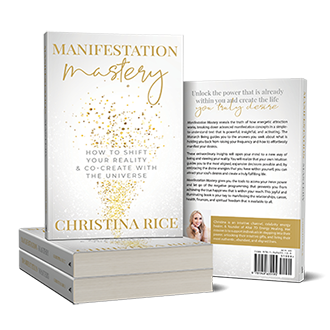

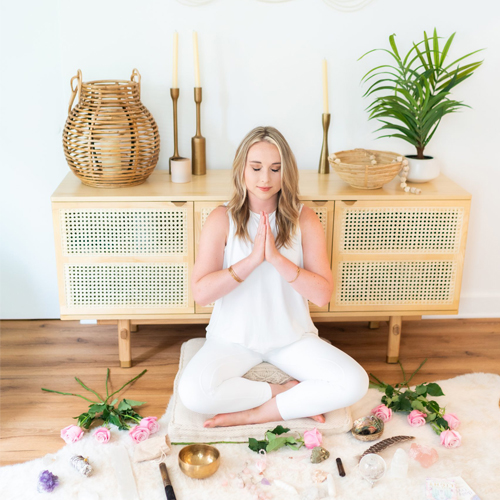
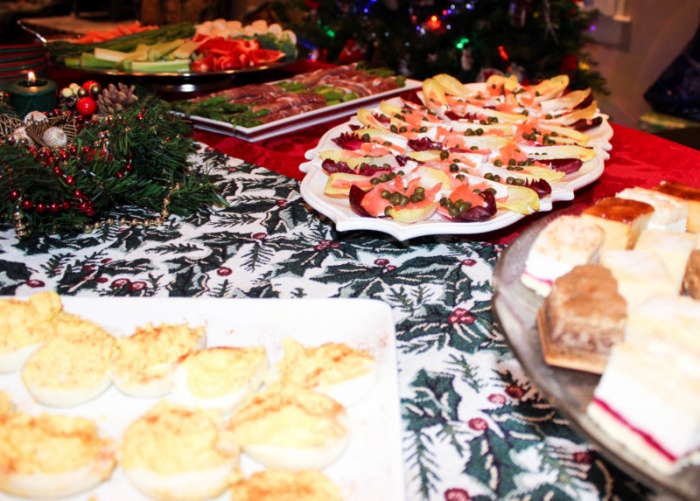
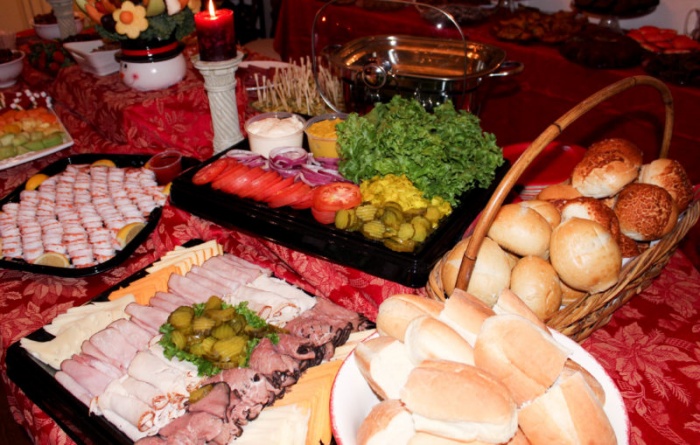
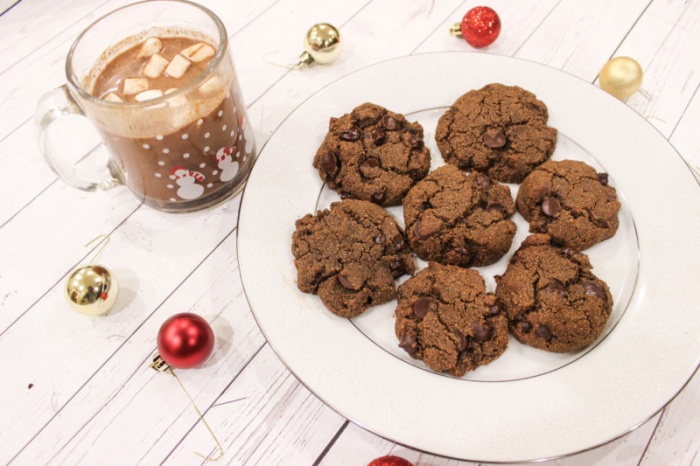

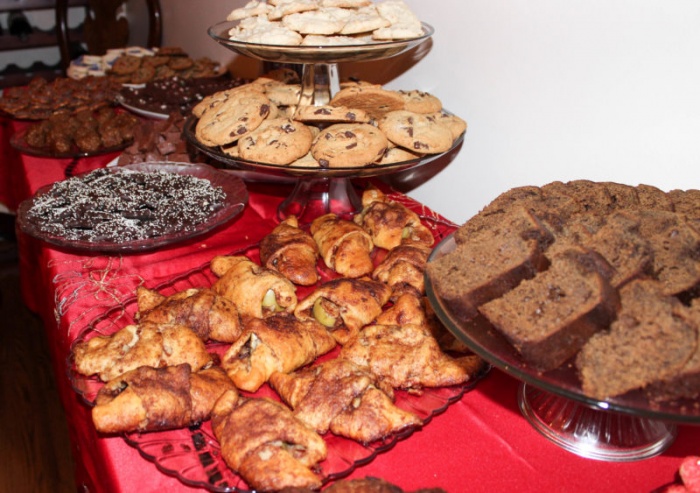


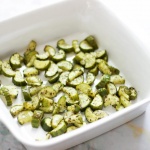


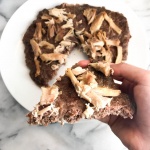

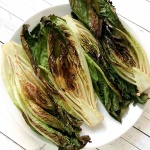

Get Updates
And Goodies
We’re over fake “wellness.” It’s time to unlock your magic & magnetism. Are you ready to vibe higher?
Are you ready to finally optimize your health habits for real results and true health?